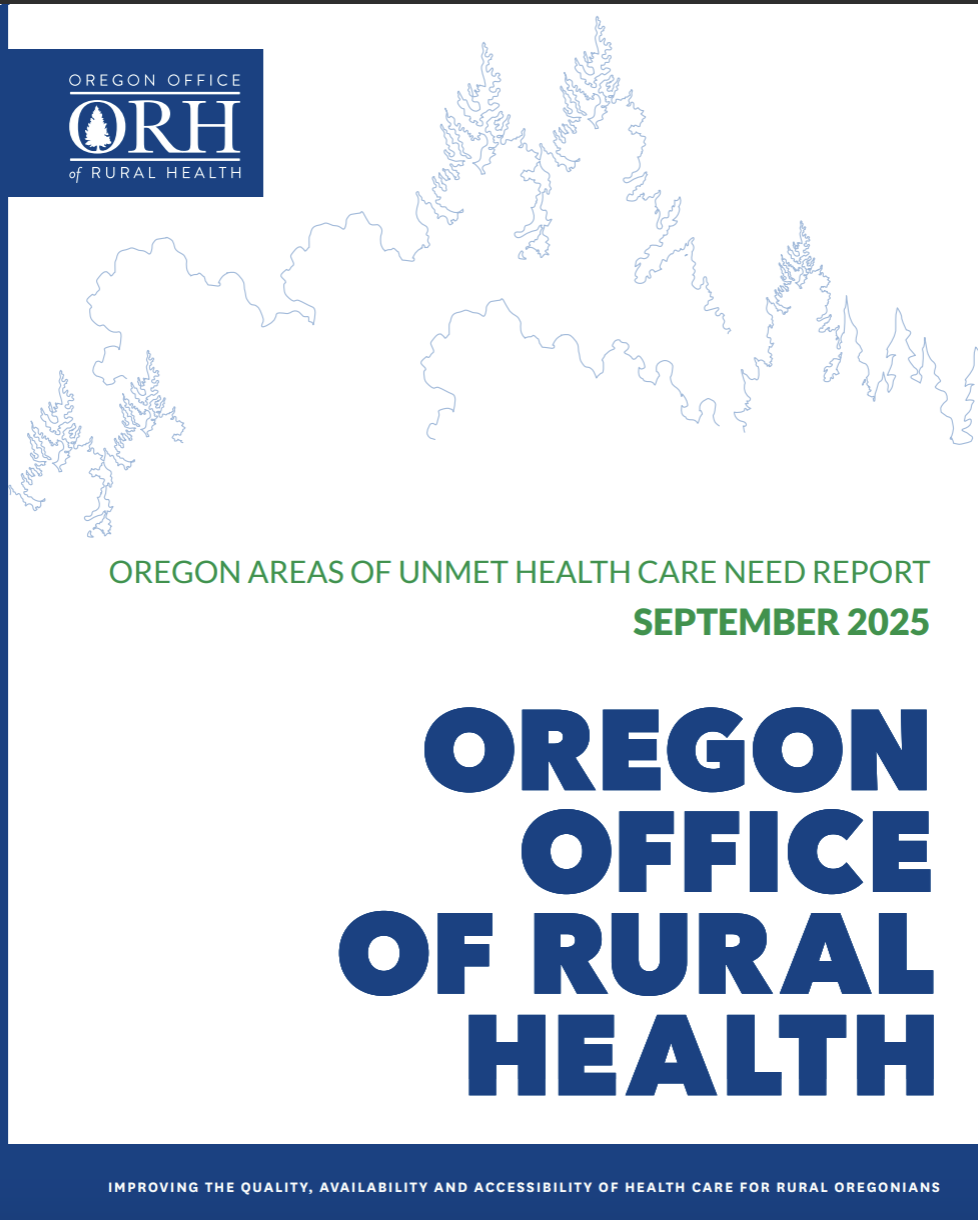Rural Health Transformation Program
On July 4, 2025, President Trump signed into law H.R. 1, the budget reconciliation law, which makes changes to Medicaid and creates the Rural Health Transformation Program.
The changes to Medicaid will have a significant impact on the program, affecting states differently based on their Medicaid programs.
Learn more about the Rural Health Transformation Program and Oregon's application here
ORH announces the 2025 Oregon Rural Health Excellence Awardees
We are pleased to congratulate the 2025 Oregon Rural Health Excellence Award awardees, who were honored at the 42nd Oregon Rural Health Conference on Oct. 2! Awardees include Columbia Memorial Hospital, Adventist Health Tillamook Rural Health Clinics, the Council on Aging of Central Oregon and Wallowa Memorial Hospital EMS.
Now Accepting Proposals for the Rural Population Health Incubator Program
ORH is now accepting grant applications for the 2026-2027 Incubator grant cycle! The deadline to apply is Jan. 23, 2026 (by 5:00 p.m. PT).
Rural CAHs Provide Quality Health Care
Every community deserves access to high-quality health care, and Oregon’s Critical Access Hospitals (CAHs) take quality seriously. Throughout rural Oregon, CAHs not only provide care the community needs but strive to ensure that care is of the highest quality. Good Shepherd Health Care System (Hermiston) and Southern Coos Hospital & Health Center (Bandon) are just two great examples of rural hospitals serving their communities with high quality health care.
Upcoming Events

Check out the ORH Event Calendar!
Go to ORH Webinars page
News Feed
- OHSU/PSU School of Public Health looking for CHWs and CBO leaders to participate in a study on partnerships
- View OHA’s new interactive map showing geographic disparities among CCOs
- The Chartis Center for Rural Health recognizes Oregon’s rural hospitals for performance leadership
- Grande Ronde Hospital recently recognized for achieving zero CAUTI rates
- The OHSU-PSU School of Public Health launches a new rural initiative
- CDC PLACES Health Data by ZCTA 2025 | Tableau map
December 11, 2025 - Causes of Death by Service Area, 2020-2024 | Tableau map
December 4, 2025 - Medicaid/Medicare by County | map | list
November 25, 2025 - Rural Health Clinics (RHC) static map | interactive map | list
November 21, 2025 - Rural-Urban Commuting Areas 2020 ZIP Codes | map |Rural-Urban Commuting Areas by Census Tract | map
September 22, 2025 - Dental HPSA | map
September 9, 2025 - 2025 Areas of Unmet Health Care Need | Report | Tableau map | maps | spreadsheet
September 4, 2025 - Pediatrician FTE per 1000 (0-17) by Service Area | map | 0-17 Populations of Service Areas with No Pediatrician FTE | map |
August 20, 2025 - Oregon Hospital Community Health Needs Assessments | Map | List |more info
August 20, 2025 - 2025 Eligible Oregon Governor's Certified Shortage Areas | Map
August 14, 2025
2025 Oregon Areas of Unmet Health Care Need Report

Check out the just released 2025 Areas of Unmet Health Care Need Report.
Connect with ORH
Subscribe to ORH!
Subscribe to the ORH mailing list, which includes our quarterly newsletters.